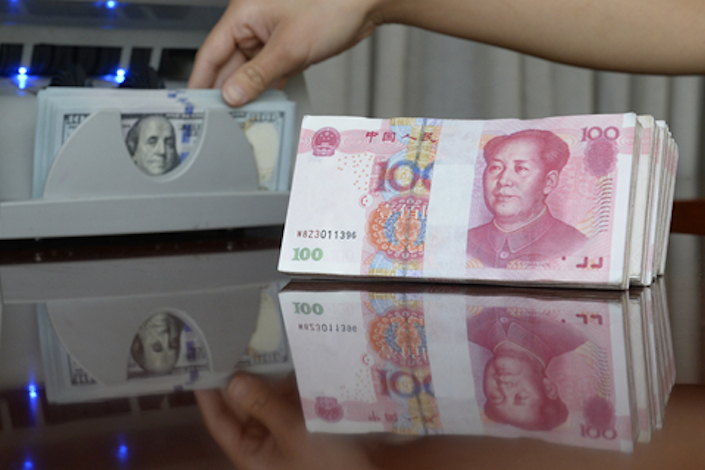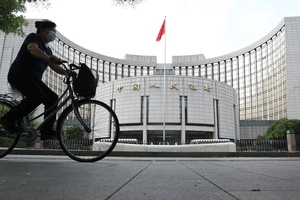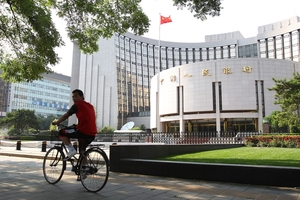Fiscal Spending And Monetary Easing Key to Stabilizing China’s Economy, Says Expert
Listen to the full version

Easing monetary policy while increasing fiscal spending could alleviate the economic pressures currently affecting China, said Huang Yiping, dean of the National School of Development at Peking University.
The monetary policy of the People’s Bank of China is central to addressing these macroeconomic challenges, particularly in the face of rising interest rate pressures and a slowing economy, he said speaking at a seminar at Peking University Monday. And the bank’s ultimate goal when adjusting monetary policy is to stabilize the economy in the short term.

Download our app to receive breaking news alerts and read the news on the go.
Get our weekly free Must-Read newsletter.
- DIGEST HUB
- Easing monetary policy and increasing fiscal spending could alleviate China's economic pressures, according to Huang Yiping.
- The People's Bank of China's monetary policy aims to stabilize the short-term economy, with gradual rate cuts expected to increase liquidity despite concerns over narrowing net interest margins.
- Complementary fiscal policies, such as government bond transactions, are suggested to provide direct support and stabilize the economy amid low demand for credit.
- People’s Bank of China
- The People’s Bank of China is crucial in addressing macroeconomic challenges, particularly with its monetary policy aimed at stabilizing the economy amid rising interest rates and a slowing economy. The central bank is expected to engage in gradual rate cuts to stimulate liquidity and complement fiscal policies. Despite concerns over low net interest margins, the bank's path to monetary easing remains clear, drawing parallels to Japan's experience with zero-interest rates.
- Federal Reserve
- The Federal Reserve, often referred to as the Fed, is the central banking system of the United States. The article mentions a broad market consensus that the Fed will begin cutting interest rates in September, which could ease some of the economic pressure on China, particularly concerning its currency and the implementation of its own monetary policies.
- As of the second quarter of 2024:
- Net interest margin in China’s banking sector reached historical lows at 1.54%.
- September 2024:
- Broad market consensus expects the Federal Reserve to begin cutting rates, easing some pressure on China.
- Monday, September 9, 2024:
- Huang Yiping spoke at a seminar at Peking University about the importance of easing monetary policy and increasing fiscal spending to alleviate economic pressures in China.
- PODCAST
- MOST POPULAR







 Sign in with Google
Sign in with Google
 Sign in with Facebook
Sign in with Facebook
 Sign in with 财新
Sign in with 财新